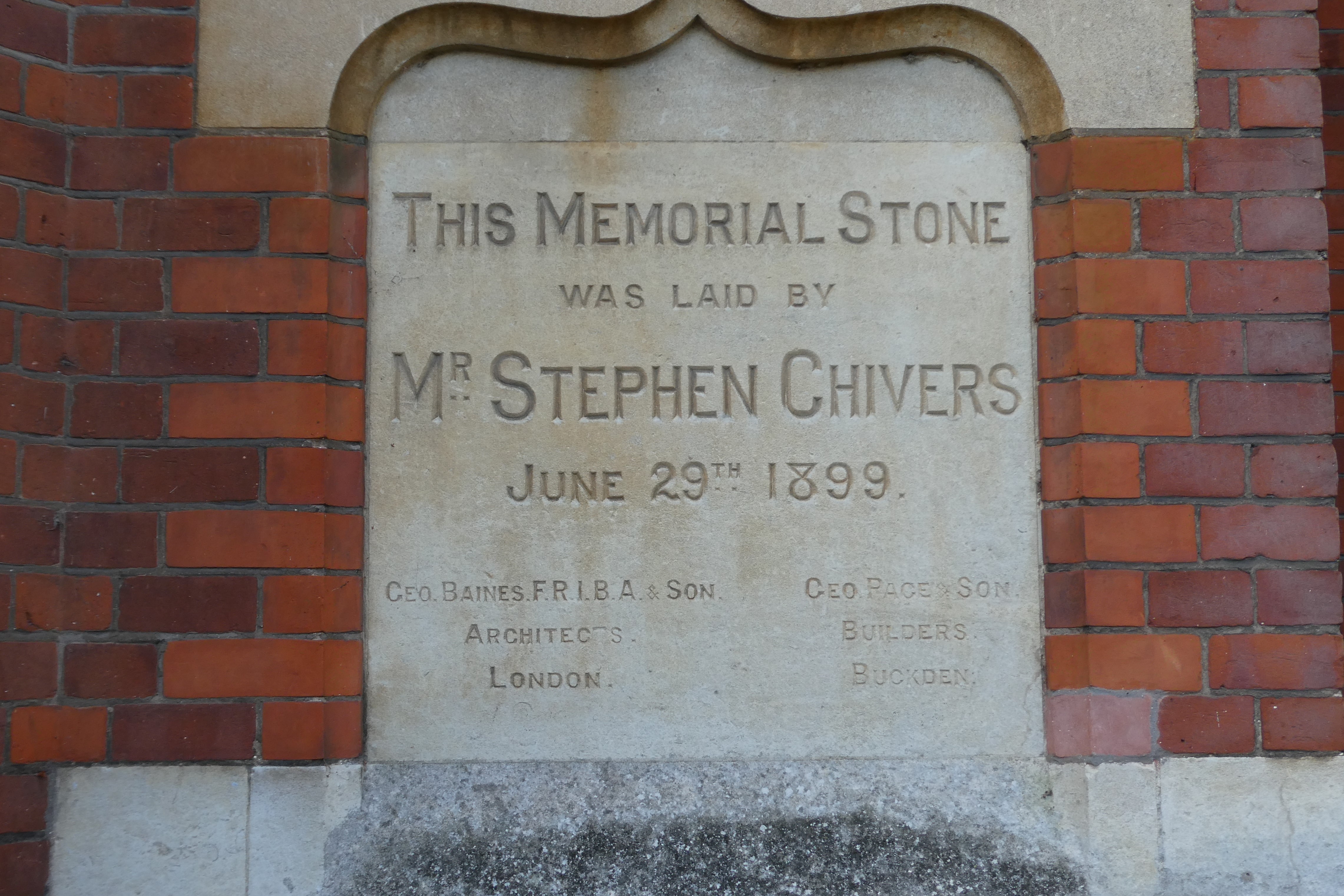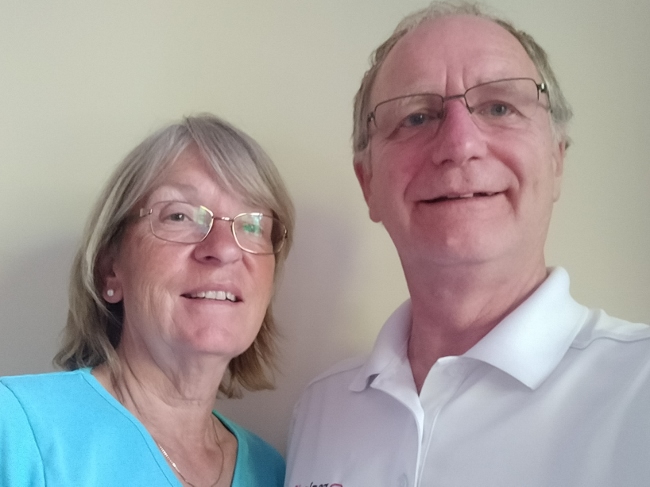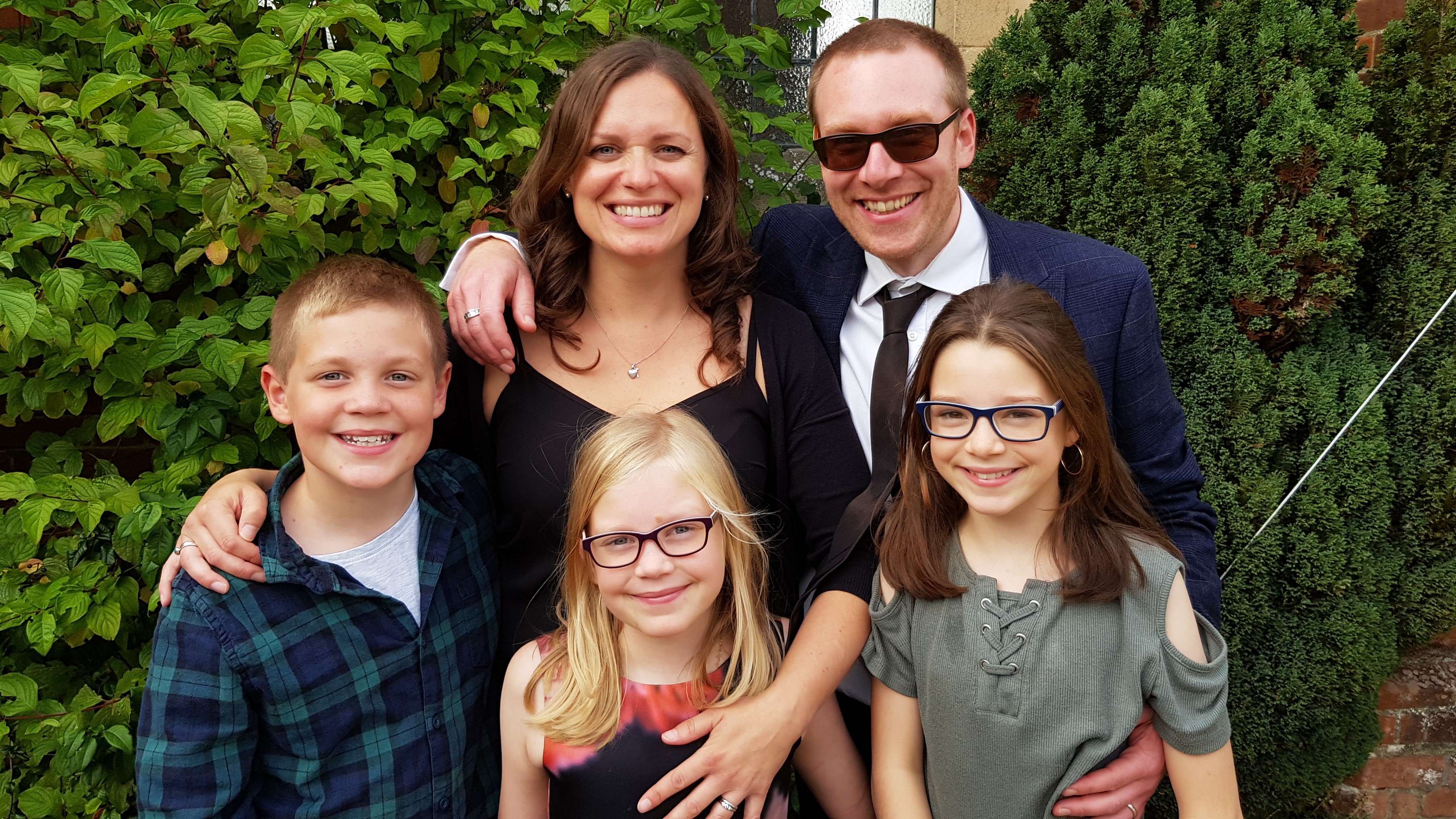On 16 April 1858, a meeting was held in Histon to consider the possibility of forming a Baptist church in the village. At that time the population of Histon and Impington was 1,300. A piece of land in the village, facing the village green, was made available for a Baptist chapel. James Burkett, who offered the land, was one of a small group who formed the core of the new congregation. They received support from St Andrew’s Street and Zion Baptist churches in Cambridge. Initial Baptist meetings on Sundays were held in a clubroom of the ‘Rose & Crown’ – Histon at that time had more than a dozen pubs – and then on 14 September 1858 a chapel was completed and opened for worship. Events had moved fast.
On 7 October fifteen people were baptised as adult believers and a total of nineteen formed the membership of the church. One of those baptised was Jacob Wisbey, who had been a Wesleyan Methodist local preacher. Several other founding members had been Wesleyan Methodists. Wisbey became the first pastor of the new Baptist Church. In November three deacons were elected by the members: James Burkett, William Chapman and Stephen Chivers, who was part of the successful fruit farming (and later jam-making) family in Histon.
During the first two decades of the new church’s life, numbers grew steadily. There were four pastors: Wisbey, who remained three years, was followed by George Sear (1862-66). In these early years Histon helped to plant two other Baptist congregations, at Girton and Milton. In 1866 Joseph Howell became pastor and served for two years while also working in life assurance. He was followed by William Piggott (1870-73), who had trained for school teaching at Homerton College, Cambridge. The first minister to have been trained at theological college was Charles Chapman (1873-76), who later went to work as a pastor in Jamaica.
By the third quarter of the nineteenth century Histon Baptist Church’s (HBC) membership had reached 78. James Williams, a local man, was pastor from 1877 to 1881 and was followed by W.J. Juniper, who had trained at Spurgeon’s College in London and who after two years in Histon moved to ministry in India. G.H. Jones (pastor, 1883-90), who had trained at Regent’s Park College in London, had a longer ministry than any of his predecessors and the HBC membership reached 115 by 1890. Thomas Philpot, who had trained at Spurgeon’s College, was then pastor from 1891 to 1894.
With a growth in the village population towards the end of the nineteenth century, in part due to the expansion of Chivers and Sons whose workforce reached 2,000, discussions took place about larger chapel premises. Under the pastorate of Robert Smith, who had a long and inspiring ministry from 1895 to 1927, a significant move took place. At a church meeting in March 1899 Stephen Chivers announced that he would donate land on Station Road for the building of a new chapel and Sunday School building, and members of the Chivers family between them pledged £1,550 towards construction costs. This level of generosity and care was typical of the family, who over the years provided their employees and the village more widely with welfare workers, a doctor and nurses, playing fields, a gym and reading room as part of the Histon Institute, and educational opportunities.

Memorial stone on the wall of Histon Baptist Church
The early years of the twentieth century saw significant gains: the opening of the new chapel and Sunday School building and also the building of a manse. There were also losses. In 1902, William Chivers, the son of Stephen, died suddenly at age fifty. He had developed the Chivers factory, had been a Justice of the Peace, had been a much appreciated Cambridgeshire local preacher, and nationally had been a strong supporter of the Baptist Union. His motto was ‘Christ first, me last, and nothing but love between’. In 1907 Stephen Chivers and his wife Rebecca, who had done much to see Baptist witness founded and developed, both died.
At the Jubilee celebrations of the church in 1908 it was recorded that membership stood at 175, with a Sunday School of about 260. The country as a whole, and all the British churches, were to suffer tragic losses during the First World War. Some churches found recovery very difficult. However, when Robert Smith moved on from HBC in 1927, to become pastor in Wisbech, the church’s membership stood at 250. There had been 227 baptisms during Robert Smith’s thirty-two years in Histon, an indication of his effectiveness as an evangelist as well as a pastor.
There was a further long and fruitful ministry in the 1930s and 40s. H.W. Batstone became HBC’s pastor in 1928 and remained for twenty-four years. He was known as a saintly man, until encountered across a tennis net – he was a county level player for his home county of Devon. The church’s buildings were developed under his leadership. There was also increased interest in international mission. In 1933 Dr and Mrs A.E. Moore joined the church. Dr Moore had served as a medical missionary with the Baptist Missionary Society (BMS) in India and as a Chief Medical Officer in the Indian Civil Service. Dr Moore became the Chivers’ factory doctor and ran a thriving general practice in Histon. He was HBC’s BMS secretary and after his death his second wife, Ruth, served in this role.
In 1953 David Jackson became minister. He brought a particular emphasis on youth ministry, setting up a branch of the League of Young Worshippers and starting a junior choir, which took part in the morning services. The Young People’s Circle (YPC) led services in some of the smaller churches, such as Landbeach, Coton and Comberton. HBC sent youth delegates to the Baptist World Alliance Congress in London in 1955. Jackson became Young People’s Secretary of the Baptist Union in 1958. In subsequent years, under Dennis Bidwell’s ministry (1958-1976) and up to today, many of these emphases continued: there was musical involvement, through choirs and later a worship band; young people were very active; and there was sustained outreach. The Histon and Impington Council of Churches was formed in 1960 to strengthen inter-church witness in the village. Dennis Bidwell was for over ten years a part-time chaplain at Addenbrooke’s Hospital.
Alongside these ministers the role of many committed church members was vital. From the 1940s women as well as men served as deacons. Later the leadership included elders. A notable Sunday School superintendent and church secretary was Reg Barnes, who resigned from these ministries in 1960. He had guided many young people to personal faith. He organised, often in conjunction with the Methodist Church, outings from Histon to the seaside. These filled as many as six or seven coaches. In 1973, partly replacing previous children’s activities, the Council of Churches Holiday Club began.
HBC has had three ministers since the later 1970s: Tony Barker (1978-94), Barry Vendy (1996-2000) and Ron Day (2001 to 2020). In the 1980s a Day Centre for elderly people in the village was started in the church, functioning two days a week. A major development with the buildings, to assist local mission, was a link between the chapel and Sunday School, providing new rooms, toilets and kitchen. Cyril Middleton, a local builder and deacon of HBC, assisted by Bert Vialls, oversaw the extensive work. Completion was celebrated at the end of 1993. International mission was extended through a number of members: Lee and Evelyn Messeder, Eileen Holmes and Annie Chalkley, all engaged in significant overseas work. Steve Whyatt, one of the young people who had grown up in the church, was employed as a part-time and then full-time youth worker, until he moved in 1999 to work for Scripture Union. A number of HBC young people took part in ‘year out’ schemes which fostered their Christian discipleship. Home Groups were started.

Gill and Ron Day (2001-2020)
In 1986 Nick Nicholls, who had been baptised four years earlier in HBC, commenced training at Bristol Baptist College and then entered ministry, and in the 1990s there were further developments in this area. Philip Staves, an HBC member, felt called to Baptist ministry and through the church-based scheme at Spurgeon’s College he became student minister (and later minister) at Girton. Sheila Martin, who was on the same course, was student minister at Landbeach and became closely associated with HBC. In 1995, five couples from HBC who saw the needs at Girton transferred their membership there, with the full backing of HBC, and in 2002, when Phillip Staves became a chaplain at Addenbrooke’s hospital, one of that group, Steve Holland, became student minister (and again, later the minister) at Girton. Also in 2002, Ian Sanderson, a member of HBC, launched Afrinspire, a Christian based UK charity helping to support indigenous African development.
Under Barry Vendy’s ministry Alpha courses were introduced in Histon and the first, in 1997, was attended by over fifty people. Mat Wilson, an HBC member, felt called to ministry and began at Spurgeon’s College, from where he and his wife Hannah went to work in Albania. In 2001 Ron Day became minister and Peter Spence was appointed youth pastor. An emphasis on youth and children continued through: the youth pastor’s work, the very popular Holiday Club, the work of John Hardwick, a well-known children’s worker and member of HBC, and through Katie Willingham, a member working with Youth for Christ. When Peter Spence moved he was replaced by Chris Farmer and when, in 2016, after several years of fruitful work at HBC, he began training for Baptist ministry, the church appointed Rilla Molnár, who had been with West Cambridge Christian Youth Ministries.
The life of Baptist churches has changed greatly since the 1850s, when HBC was formed. General levels of church-going have declined in Britain. Although Histon has increased in population as a village, HBC has a membership of half the number it had 100 years ago. Other church options have started, for example New Life, met for years in HBC on Sunday afternoons before moving to a school in Eddington. However, the vision that led to the initial foundation of HBC continues. Ron Day's consistent ministry built up a committed congregation, reaching out to all ages. The worship area was extensively refurbished in 2010, with an extended rostrum area for leading worship, and comfortable chairs to replace most of the pews, making it more versatile. Although the use of the premises was interrupted by the pandemic in 2020-21, the church buildings are used virtually every day by church groups and many other groups within the village. International links continue, most recently with Freedom Church in Tirana, Albania. The HBC church services have been marked by vibrant worship and preaching which seeks to draw people to Jesus Christ and enable them to live as disciples in the twenty-first century. During the pandemic services were online. We are now back worshipping in the building, with online links for those unable to come.
The new HBC pastor is Chris Farmer, who was already well known in Histon. He trained for youth ministry at Ridley Hall in Cambridge, was youth leader at All Saints Church, Milton, and then led a growing youth work at HBC. He and his wife Kate and their three children moved on from Histon when Chris responded to a call to Baptist ministry. His training was at Spurgeon’s College, which is well known to Histon Baptist, and he was minister-in-training and then minister in Braintree Baptist Church. With Ron Day’s retirement in 2020, HBC members were praying for and seeking a new pastor and it is a source of joy to the church that Chris has taken up that role from September 2021.

Revd Chris Farmer and family2021